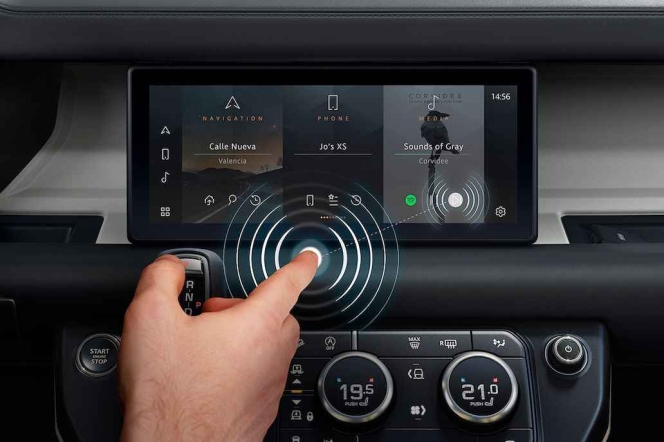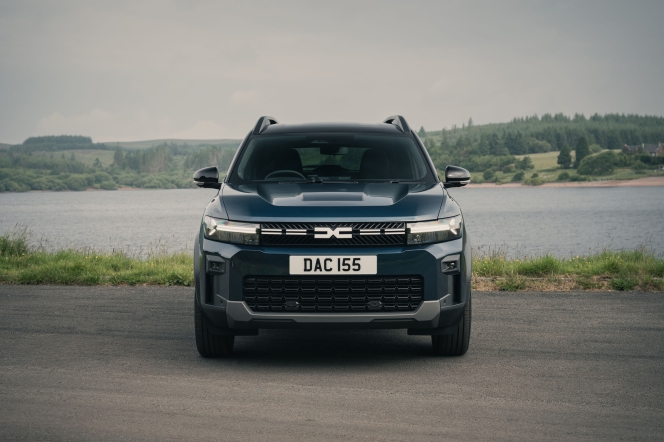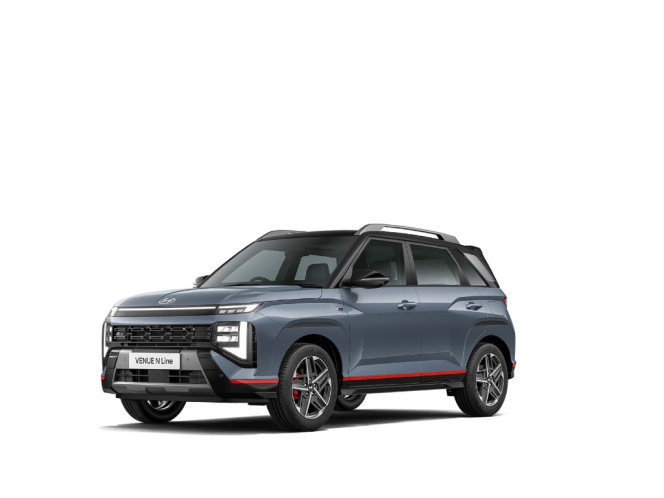JLR Develops Contactless Touchscreen To Help Fight Bacteria And Viruses
- By MT Bureau
- July 23, 2020

To help keep drivers’ eyes on the road and reduce the spread of bacteria and viruses in a post COVID-19 world, Jaguar Land Rover develops new contactless touchscreen technology along with the University of Cambridge. This is part of the vehicle maker’s Destination Zero vision – a desire to make its vehicles safer and the environment cleaner and healthier.
The patented technology, known as ‛predictive touch,’ uses artificial intelligence and sensors to predict a user’s intended target on the touchscreen – whether that’s satellite navigation, temperature controls or entertainment settings – without touching a button.
Lab-tests and on-road trials showed the predictive touch technology could reduce a driver’s touchscreen interaction effort and time by up to 50 percent, as well as limiting the spread of bacteria and viruses.
Uneven or poor road surfaces can often cause vibrations that make it difficult to select the correct button on a touchscreen. This means drivers must take their attention away from the road, increasing the risk of an accident.
The technology uses artificial intelligence to determine the item the user intends to select on the screen early in the pointing task, speeding up the interaction. A gesture tracker uses vision-based or radio frequency-based sensors, which are increasingly common in consumer electronics, to combine contextual information such as user profile, interface design and environmental conditions with data available from other sensors, such as an eye-gaze tracker, to infer the user’s intent in real time.
Lee Skrypchuk, Human Machine Interface Technical Specialist, at Jaguar Land Rover, said: “As countries around the world exit lockdown, we notice how many everyday consumer transactions are conducted using touchscreens: railway or cinema tickets, ATMs, airport check-ins and supermarket self-service checkouts, as well as many industrial and manufacturing applications. Predictive touch technology eliminates the need to touch an interactive display and could therefore reduce the risk of spreading bacteria or viruses on surfaces.
“The technology also offers us the chance to make vehicles safer by reducing the cognitive load on drivers and increasing the amount of time they can spend focused on the road ahead. This is a key part of our Destination Zero journey.” (MT)
Force Motors Posts Best-Ever Third-Quarter Performance
- By MT Bureau
- February 06, 2026

Force Motors Limited reported its strongest third-quarter performance to date, with double-digit revenue growth and sharply higher profit margins for the three months ended December 31 2025, extending its record run in the 2025–26 financial year.
The Pune-based vehicle maker recorded standalone revenue of INR 21.55 billion in the quarter, up 13 percent year on year. Earnings before interest, tax, depreciation and amortisation rose 63 percent to INR 4.01 billion, while profit before tax, excluding exceptional items, increased 91 percent to INR 3.28 billion.
Including exceptional items, profit before tax rose to INR 5.39 billion, more than three times the level a year earlier, while profit after tax climbed 266 percent to INR 4.03 billion. The company reported no debt at the end of the quarter.
For the first nine months of the financial year, revenue rose 14 percent to INR 65.83 billion. EBITDA increased 43 percent to INR 11.45 billion, while profit before tax after exceptional items nearly doubled to INR 11.42 billion. Profit after tax for the period rose 153 percent to INR 9.38 billion.
Domestic volumes grew 25 percent during the nine-month period, supported by demand across the Urbania, Traveller, Gurkha (defence variants), Monobus and Trax platforms. Export volumes increased 30 per cent year on year, led by growth in light commercial vehicles, special vehicles and utility vehicles.
The Traveller platform-maintained segment leadership, with market share consistently above 70 percent, the company said.
Prasan Firodia, managing director of Force Motors Limited, said, “The performance in the third quarter reflects steady demand across our core product segments and improved operating leverage as volumes have scaled through the year. Growth has been broad-based, supported by continued traction in shared mobility, defence-related applications, and export markets.”
He added that demand visibility remained healthy in intra-city and inter-city passenger mobility, with institutional and fleet customers continuing to prioritise purpose-built platforms.
“Given the momentum we have gained and with Q4 underway, we are confident of closing the year on a strong note and delivering our best financial performance to date,” Firodia said.
Dacia Rolls Out 100,000th Bigster In Just One Year
- By MT Bureau
- February 05, 2026

Renault Group-owned European car brand Dacia has achieved a significant milestone with the rollout of the 100,000th Bigster just one year after its production began at the Mioveni facility in Romania. This impressive volume highlights the immediate and substantial demand for the brand's latest model. Even prior to its full market launch, the vehicle garnered over 13,000 pre-orders, signalling strong early interest in its proposition of a value-oriented, family-sized SUV.
The model swiftly translated this initial promise into market leadership, becoming the best-selling C-SUV to retail customers across Europe in the second half of 2025. This commercial success is mirrored in the United Kingdom, where close to 5,000 orders have been recorded. British buyers have shown a distinct preference for the efficient hybrid 155 powertrain and the generously specified Journey trim level, with Indigo Blue being the colour of choice.
Beyond sales figures, the Bigster's impact has been validated by influential industry awards, most recently at the 2026 What Car? Car of the Year Awards, where it was hailed as a definitive value champion. Designed to challenge the status quo, the Dacia Bigster, starting from GBP 25,215, successfully delivers a robust, well-equipped and practical solution for families, firmly establishing its successful position in the competitive automotive landscape.
Hyundai Motor India Reports INR 123 Billion Profit In Q3 FY2026
- By MT Bureau
- February 02, 2026

Hyundai Motor India (HMIL) has released its unaudited financial results for Q3 FY2026 and nine months ending 31 December 2025.
The company reported a Profit After Tax (PAT) of INR 123.44 billion for Q3, representing a 6.3 percent increase YoY. Revenue for the quarter reached INR 1,797.35 billion, up 8 percent compared to the same period last year. EBITDA stood at INR 2,018.3 billion, a 7.6 percent rise, supported by festive demand and the implementation of GST 2.0.
The company stated that the domestic demand was supported by wholesale volumes increasing 5 percent QoQ. The Hyundai Creta recorded sales of over 200,000 units in the 2025 calendar year, while the new Venue model has received nearly 80,000 bookings to date.
Hyundai Motor India also entered the commercial mobility segment with the Prime HB and SD taxi models. Exports grew by 21 percent YoY in Q3 FY26, accounting for 25 percent of the total sales mix.
For the nine-month period, EBITDA reached INR 6,632.5 billion, a 3.3 percent increase. EBITDA margins expanded to 12.8 percent, up from 12.5 percent in the previous year, despite costs related to capacity stabilisation and commodity prices.
Tarun Garg, Managing Director & Chief Executive Officer, said, “The third quarter performance underscores our resilience and strong execution of 'Quality of Growth' strategy, marked by healthy growth in volumes, revenue and profitability. Notably on a year-to-date basis, EBITDA margins expanded to 12.8 percent as against 12.5 percent last year, supported by our efforts towards improving sales mix and prudent cost control measures. As we move ahead, the robust January’26 sales number gives us great momentum towards a healthy 2026.”
|
Particulars |
Q3 FY26 |
Q2 FY26 |
Q3 FY25 |
9M FY26 |
9M FY25 |
|
Revenue |
179,735 |
174,608 |
166,480 |
518,472 |
512,526 |
|
EBITDA |
20,183 |
24,289 |
18,755 |
66,325 |
64,211 |
|
EBITDA % |
11.2% |
13.9% |
11.3% |
12.8% |
12.5% |
|
PAT |
12,344 |
15,723 |
11,607 |
41,759 |
40,259 |
Jeep Reaffirms India Commitment With Strategic Plan Jeep 2.0
- By MT Bureau
- February 02, 2026

Stellantis-owned Jeep has announced its Strategic Plan Jeep 2.0, positioning India as a central hub for its operations in the Asia Pacific region. The plan focuses on localisation, manufacturing depth, and export expansion from the company's facility in Ranjangaon, Pune.
As part of the strategy, Jeep intends to increase localisation levels to 90 percent, up from the current 65–70 percent. This move is aimed at strengthening supply-chain resilience and cost competitiveness. The Ranjangaon plant, which has an annual capacity of 160,000 vehicles, currently exports the Compass, Meridian, and Commander to markets including Japan, Australia and New Zealand. Plans are underway to expand exports to Africa and North America.
The company plans to introduce a new vehicle lineup in India starting from 2027. In the interim, Jeep will maintain its current portfolio through refreshes and special editions. To support its customers, the brand has introduced the Confidence 7 programme, which includes a buyback scheme, pre-maintenance packages, and extended warranties.
At present, Jeep operates over 85 sales and service touchpoints across 70 cities in India. The automaker stated that in 2025, the Wrangler Willys 41 limited edition sold out within seven days. The company is also focusing on its owner community, which has reached 100,000 members, through experiential platforms and brand clubs.
Shailesh Hazela, CEO & Managing Director, Stellantis India, said, “Jeep’s 85-year legacy is built on authenticity and adventure. Strategic Plan Jeep 2.0 lays out how we will sharpen our product strategy and strengthen the customer experience year after year, driven by deeper localisation, global product alignment, expanding our vehicle offerings, and programs that deliver real value. We are equally focused on taking care of our existing customers, ensuring they receive the support, service and confidence they expect from Jeep. Success in India demands resilience and long-term commitment and we are investing with that clarity to ensure Jeep remains a brand of pride and desirability.”







Comments (0)
ADD COMMENT